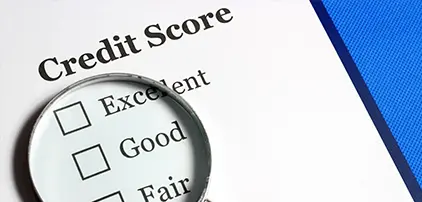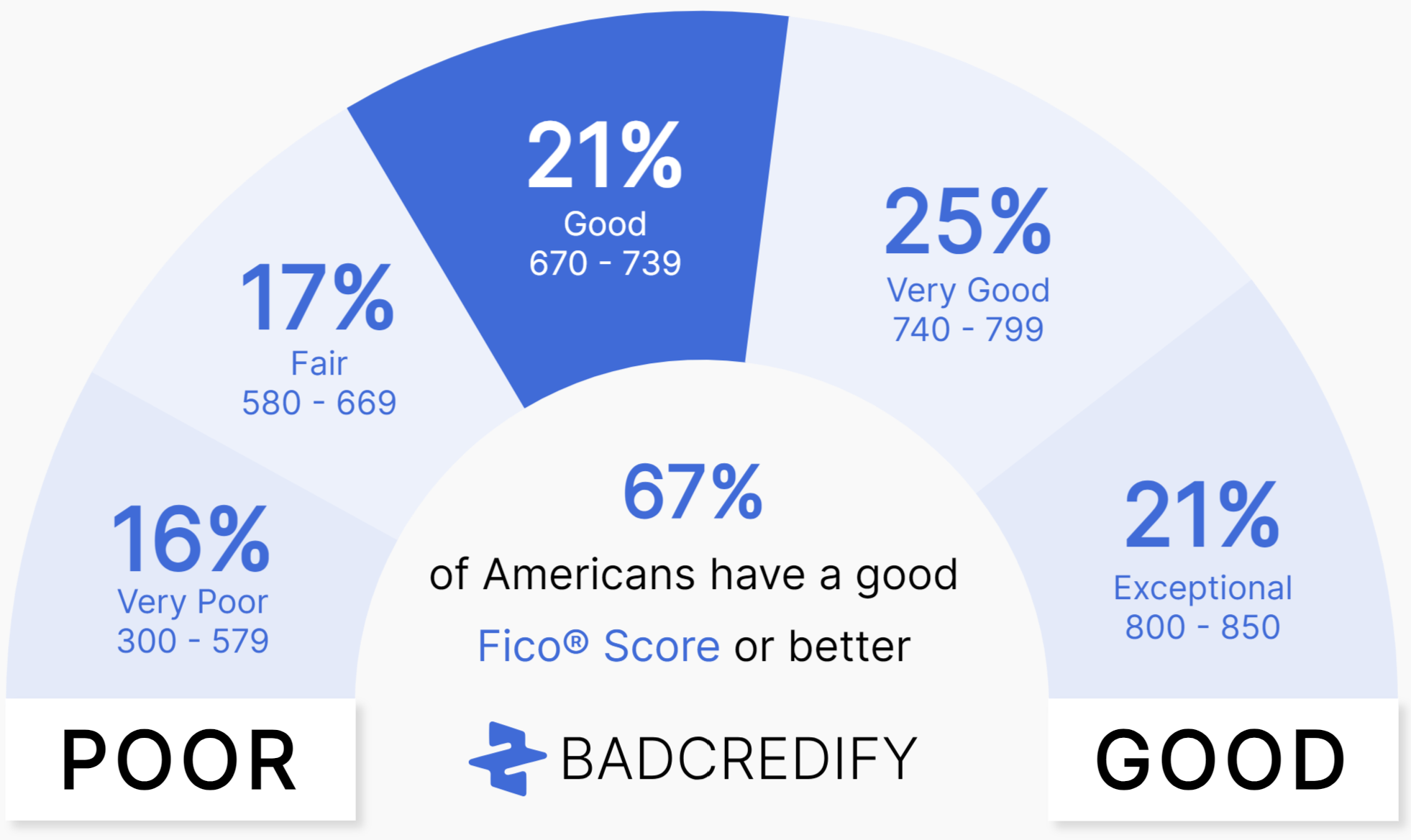On This Page:
Where Can You Open A Bank Account With Bad Credit?
What Information Do You Need to Open a Bank Account?
What to Consider Before Opening Bad Credit Bank Accounts?

Pre-Qualify With No Impact On Your Credit Score
Stuffing money into mattresses or piggy banks is becoming less and less popular. People also choose other options than keeping their wealth in the form of precious metals buried in the backyard. Checking and savings accounts serve as a common solution for storing funds. They allow you to avoid paying to check-cashing stores to access money and spending extra time and funds to pay utility bills using wire transfers.
“Can I open a bank account with bad credit?” Any interactions with traditional financial institutions, like banks or credit unions, are typically associated with a lot of stress due to hard credit checks conducted. Does it work in such a way with checking accounts? Keep reading to get an answer to this and other questions related to bank accounts.
Key Takeaways
- Opening a bank account is possible even with a bad credit score;
- Financial institutions look at your banking history instead of a credit score;
- Various fees may be charged for holding bank accounts;
- A bad credit score is considered credit below 579 FICO.
Where Can You Open a Bank Account with Bad Credit?
There are several ways to open a checking account so everybody can find something for themselves. Before making a decision, read carefully about different financial institutions and their rules.
Traditional Banks
Individuals choose to open a checking account with traditional banks due to their safety and reputation. These are the oldest financial institutions, well-known to everybody. For a large number of people, especially older ones, coming to a physical location and working with people face-to-face is preferable and more secure.
Unfortunately, for this security, clients have to pay. Traditional banks generally have stricter requirements than other financial institutions and incur higher additional charges. They are also less technologically advanced, which may make managing your funds inconvenient.
Online Banks
If visiting physical locations and using user-friendly platforms are your priorities, online banks may be an excellent solution for you. Like a traditional bank, having a checking account at an online bank is absolutely safe, as these institutions are “member FDIC.” You can be sure that your cash will be insured.
If any questions occur, you can easily ask them by phone, email, or via live chat. Communication with online bank workers is not worse than when you are coming to a physical office.
Credit Unions
An account in a credit union is a safe option, like in traditional and online banks. However, you need to be a member of the organization to use its services. If you meet the requirements, you can enjoy an account with lower fees than banks generally have. The problem is that becoming a credit union member may be problematic with a bad credit score.
What Information Do You Need to Open a Bank Account?
Banks and credit unions don’t check your credit score to open an account. Instead, they only ask you for the following information:
- Your identification document (state or military ID, driver’s license, or passport);
- Social Security number or Taxpayer Identification number;
- Proof of address.
In addition to the mentioned data, you will be asked to make an initial deposit.
What to Consider Before Opening Bad Credit Bank Accounts?
Before opening a checking account, we recommend you study additional fees your financial institution may charge.
Monthly Maintenance Fees
A monthly maintenance fee is charged for having an account with the bank. As a rule, it does not exceed $25. It is even possible to avoid monthly fees if your savings account and checking account are open with the same bank or if you set up direct deposit.
ATM Fees
You typically need to pay when you withdraw funds from your bank account. However, these costs can be avoided if you choose ATM machines in your bank’s network instead of out-of-network ones.
Overdraft Fees
Overdrafting your bank account leads to additional charges. You can often protect your checking account from these costs, but such an option is not usually available for individuals with fair or poor credit. A direct deposit is a more affordable way to avoid overdrafting. When your paycheck is automatically placed into your bank account, the chance of overdrafting is minimal.
Transaction Fees
It is recommended to take out money from your checking account regularly to avoid excessive withdrawals. Otherwise, you may face transaction fees that reach $25.
In addition to the fees, your financial institution may have a minimum opening deposit and a minimum balance requirement. While these are typically not significant amounts of up to $100, you should still take them into consideration.
What Is a Bad Credit Score?
When individuals borrow money or get a credit card, they have a credit file at one of the three major credit bureaus: Equifax, Experian, or TransUnion. Their lenders or credit card issuers report there the information about their debts and on-time or late paying bills. Then, this data is used to calculate their credit score.
While people who always make on-time payments benefit from a good credit score, those breaking deadlines face the consequences of bad credit.
Most credit reporting agencies computerize people’s credit scores by the FICO Score, consisting of the following elements:
- Payment history (35%);
- Total amount owed (30%);
- Length of credit history (15%);
- Mix of credit types (10%);
- New credit (10%).
While the FICO Score ranges from 300 to 850, people with credit below 579 are considered bad credit borrowers.

In the future, over 9% of Americans with good FICO scores run the risk of becoming extremely delinquent.
Why Is It Important to Establish a Credit Score?
While opening a savings account is possible without a good credit score, it is still crucial for many other aspects of your life. Whether you apply for a loan or a credit card look for a job or apartment, your credit report plays an important role.
Applying for credit-builder loans or secured credit cards, becoming an authorized user on someone else’s credit card, and many other options are available for poor or bad credit individuals to establish a credit score.
More: What Credit Score Is Needed For A Personal Loan?
The Bottom Line
Unlike many other financial operations, opening a savings account is available even with a bad credit history. Whether you work with a bank or credit union, you will not face a hard credit check. The institutions focus on your banking history instead of your credit score. Before setting up checking accounts, make sure you can afford to pay a monthly fee for using the banking services. There may also be other extra charges that you can avoid by getting checks through direct deposit.



